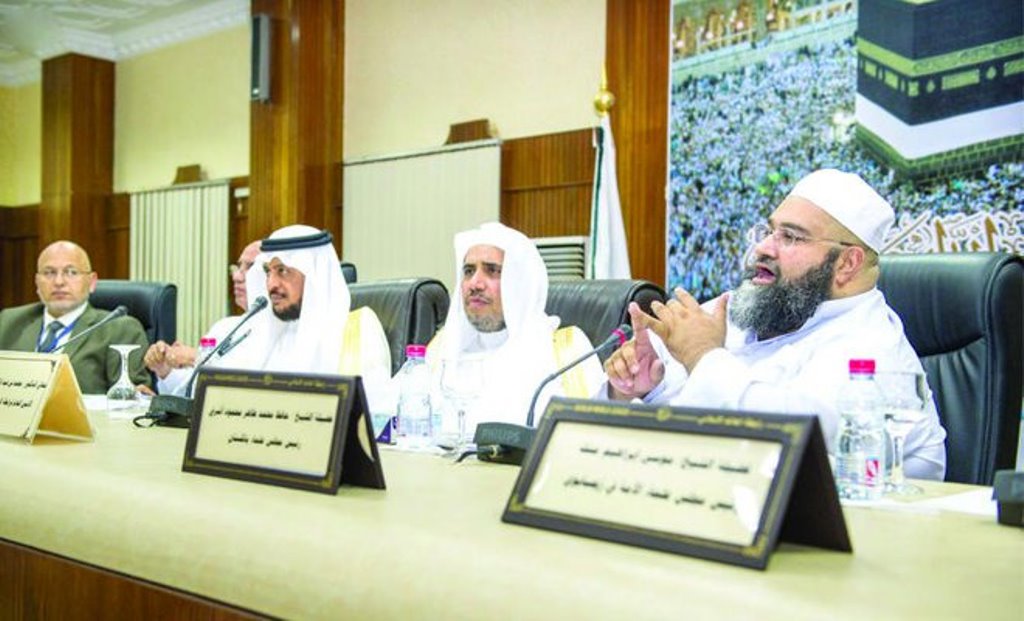Makkah – Top Islamic figures of the Muslim World League (MWL) announced their full endorsement for the statement of the International Union of Muslim Scholars (IUMS) that condemned the Justice Against Sponsors of Terrorism Act (JASTA) bill and considered it to be a blatant violation of the U.N. Charter and international laws.
The conference entitled “Islam: a Message of Peace and Moderation” was held on Wednesday with the participation of key figures and Islamic scholars.
The conference concluded that a law such as JASTA threatens world stability and causes international economic problems. The scholars hoped that U.S. legislative authorities would not allow this bill to pass because it will have negative consequences on the international efforts to fighting terrorism.
During the opening ceremony of the conference, MWL Secretary-General Mohammed al-Eisa stressed the importance of cooperation and Islamic brotherhood.
He spoke about the necessity of disseminating the international message of Islam and its moderate approach so that it would mend “our individual behavior and institutions.”
Participants at the conference praised the efforts of the Custodian of the Two Holy Mosques King Salman bin Abdulaziz for the services provided to pilgrims.
They called for unity of all units under one slogan and one description which amounts to Islam and the rejection of division and discord.
Scholars said in a statement issued after the conference that Islam never allowed any grouping to exclude any people from the Sunnah and that represented the most dangerous consequences for Islam and its people.
The statement also warned of not following the proper methods of dialogue and the danger of impulsive articles and statements that stigmatize Islam and stir discord among Muslims.
It also called on scholars, preachers and thinkers worldwide to be more tolerant with others in order to enrich discussion and dialogue within the agreed framework.
The conference cautioned that the certain schools are not a substitute for Islam and its unifying umbrella and further empowering those institutions will definitely give the false impression.
The scholars warned against the messages of hatred and instigation because as Allah instructs in the holy Koran: “Invite to the way of your Lord with wisdom and good instruction, and argue with them in a way that is best.”
The statement stressed that terrorism has no religion or country and has no relation to any school or belief of the people of Islam.
It also appreciated fair voices from non-Muslim people who believe that terrorism is a criminal tendency that has nothing to do with religion or country and that Islam is free of those charges.
In addition to military acts against terrorism, the conference stressed the importance of ideological efforts to fight it.
In this context, the conference commended the Saudi initiative for the establishment of an international center and an Islamic alliance to fight terrorism.
Scholars at the conference condemned Iran’s flagrant intervention in Hajj affairs and its desperate attempts to break Muslim ranks as well as its adoption of slogans that divide Muslims, increase negative feelings and instigate discord.
They stressed that the Islamic message was global, calling for peace, co-existence and humanitarian cooperation with all, saying it stands for tolerance and moderation.
